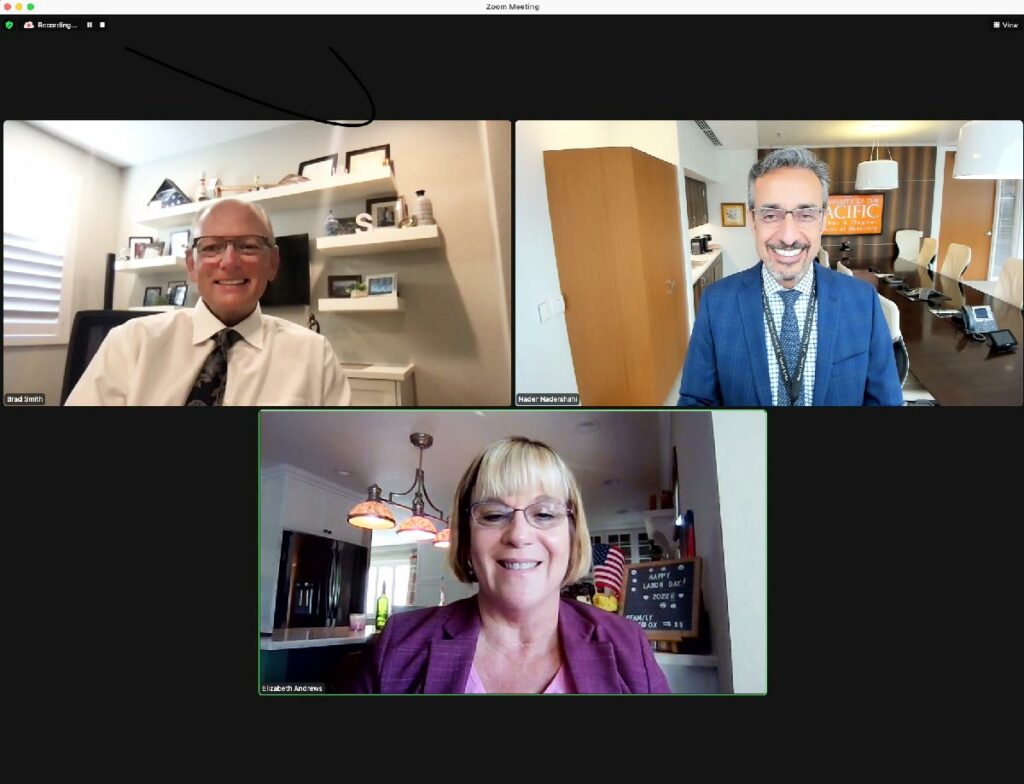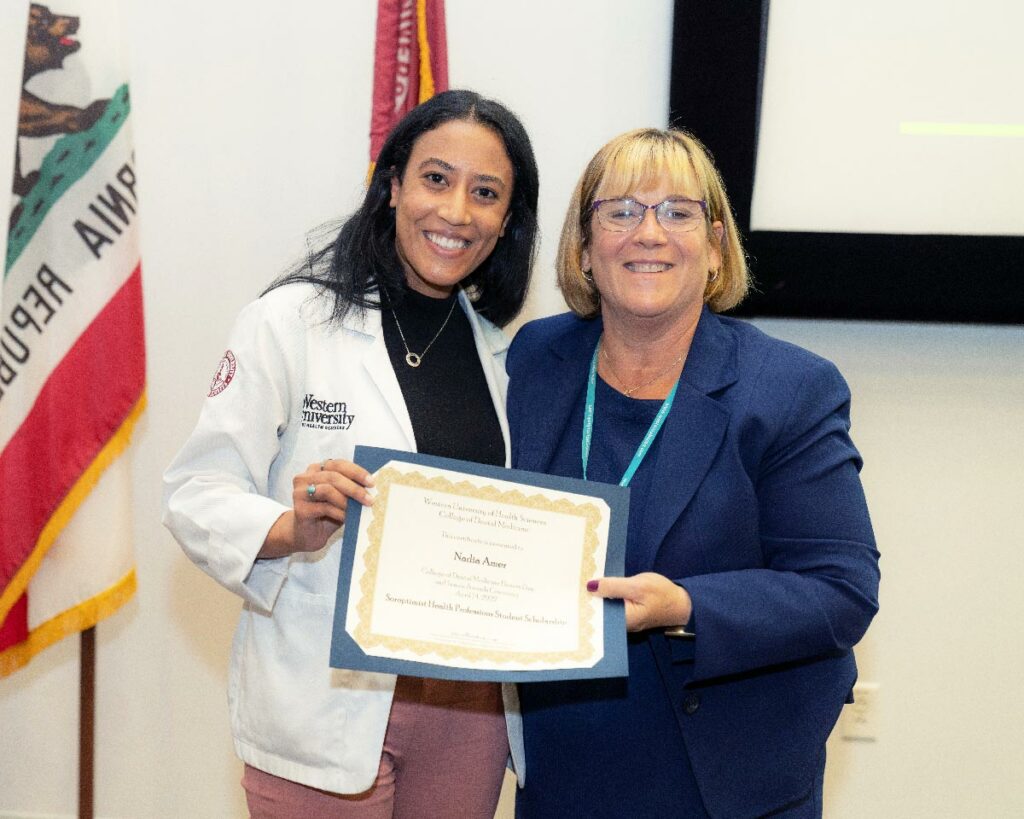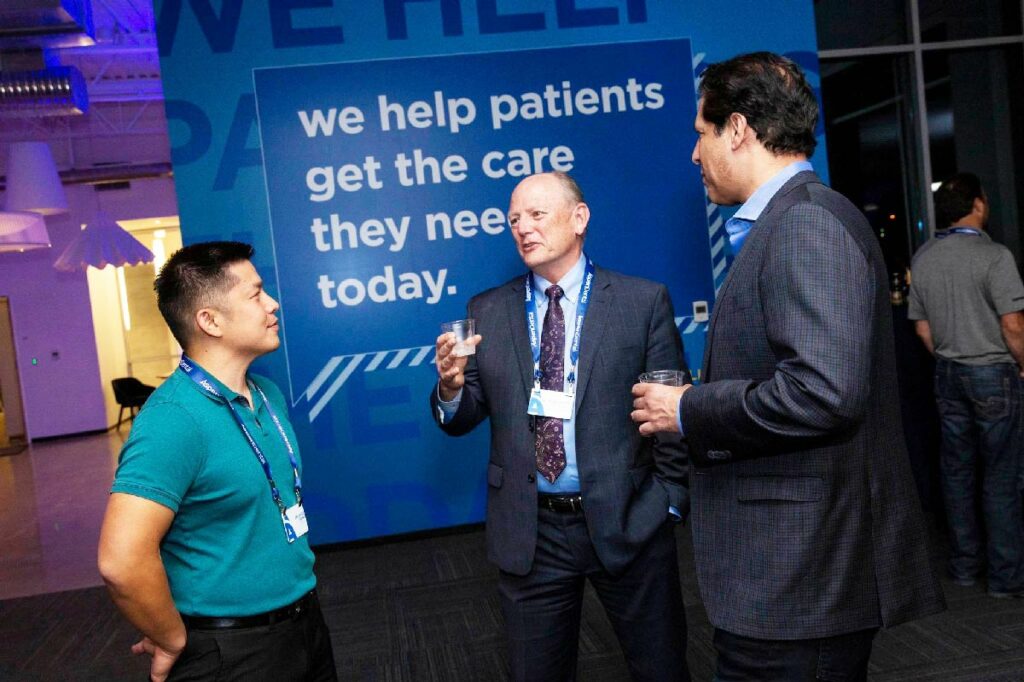Graduates of the Arthur A. Dugoni School of Dentistry have made a significant impact on the development of our profession during the last 125 years. One area has been the education of generations of oral healthcare practitioners. Dean Nader A. Nadershahi ’94 spoke with two dean colleagues who recently transitioned into or retired from their deanship. Dr. P. Bradford Smith ’86 just retired as dean of the College of Dental Medicine at Midwestern University in Glendale, Arizona, a position he took over from Dr. Russ Gilpatrick ’74 in 2015. Dr. Elizabeth A. Andrews ’95 recently started her position as dean of the College of Dental Medicine at Western University of Health Sciences in Pomona, California. This article shares excerpts directly from the recent conversation between these three friends and colleagues via Zoom.
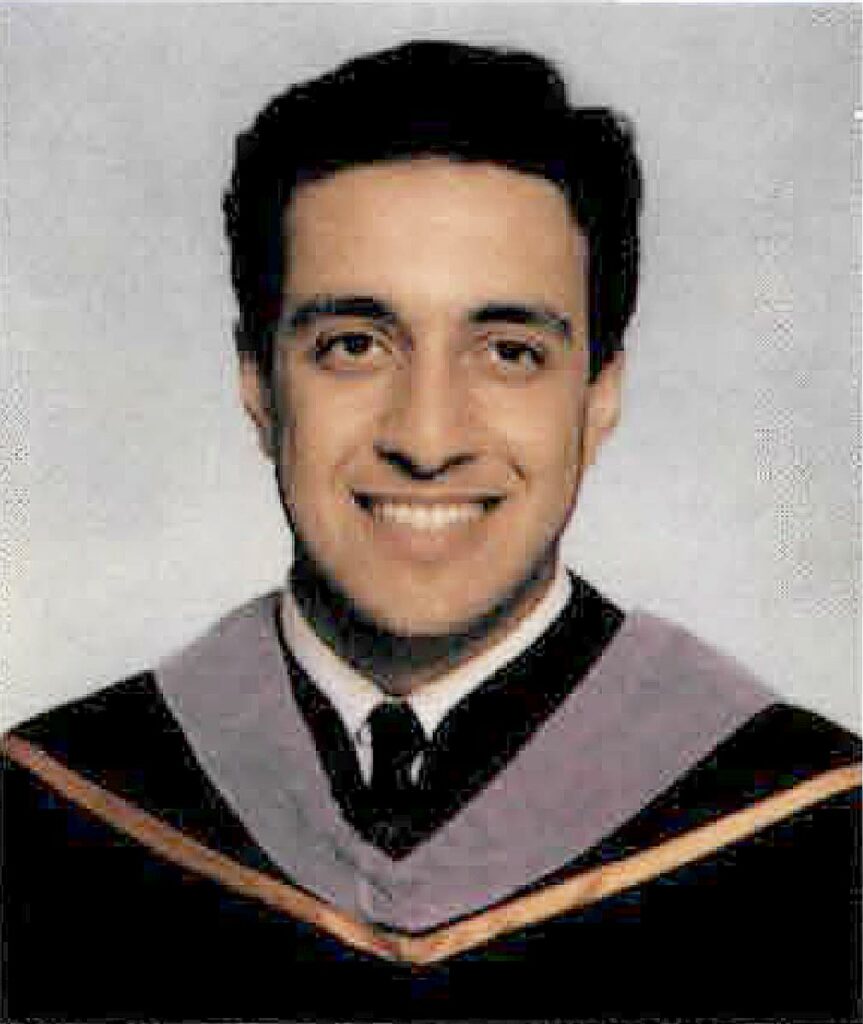
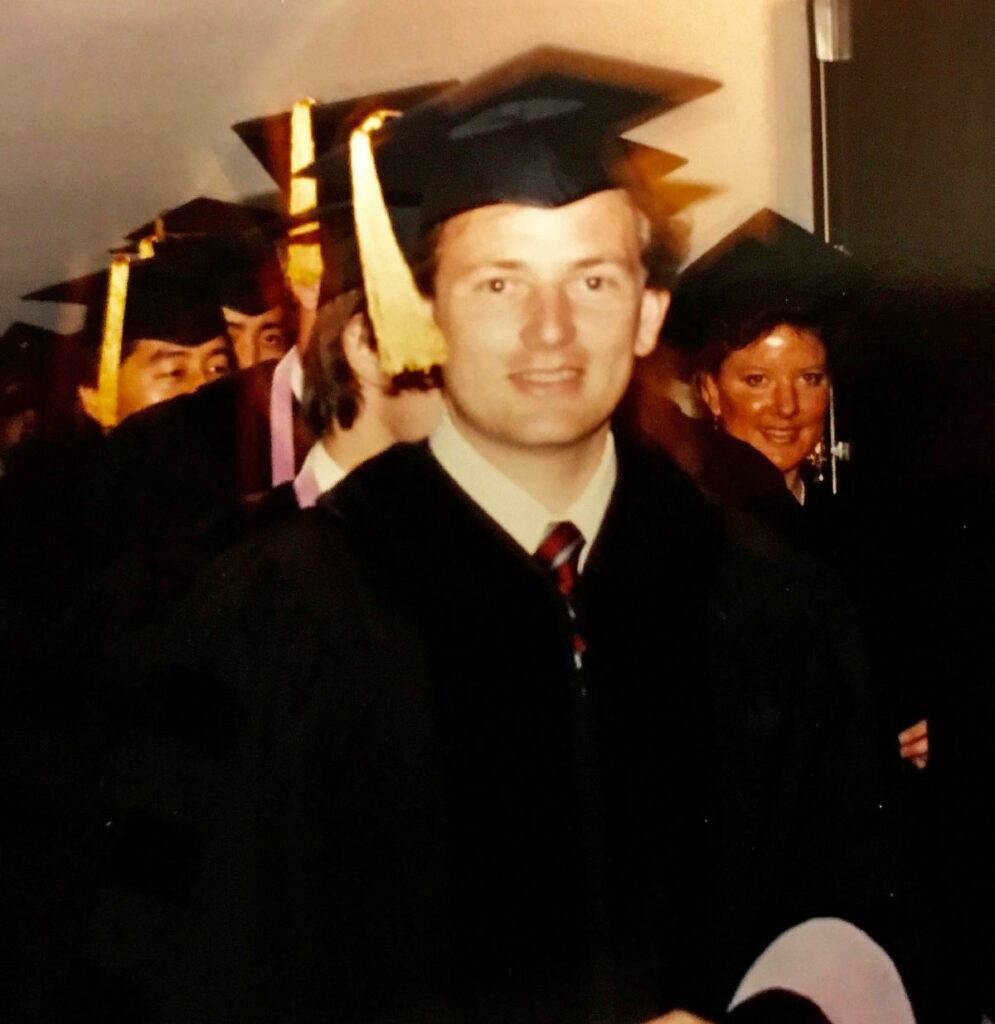 Photo by Sherrie Smith
Photo by Sherrie Smith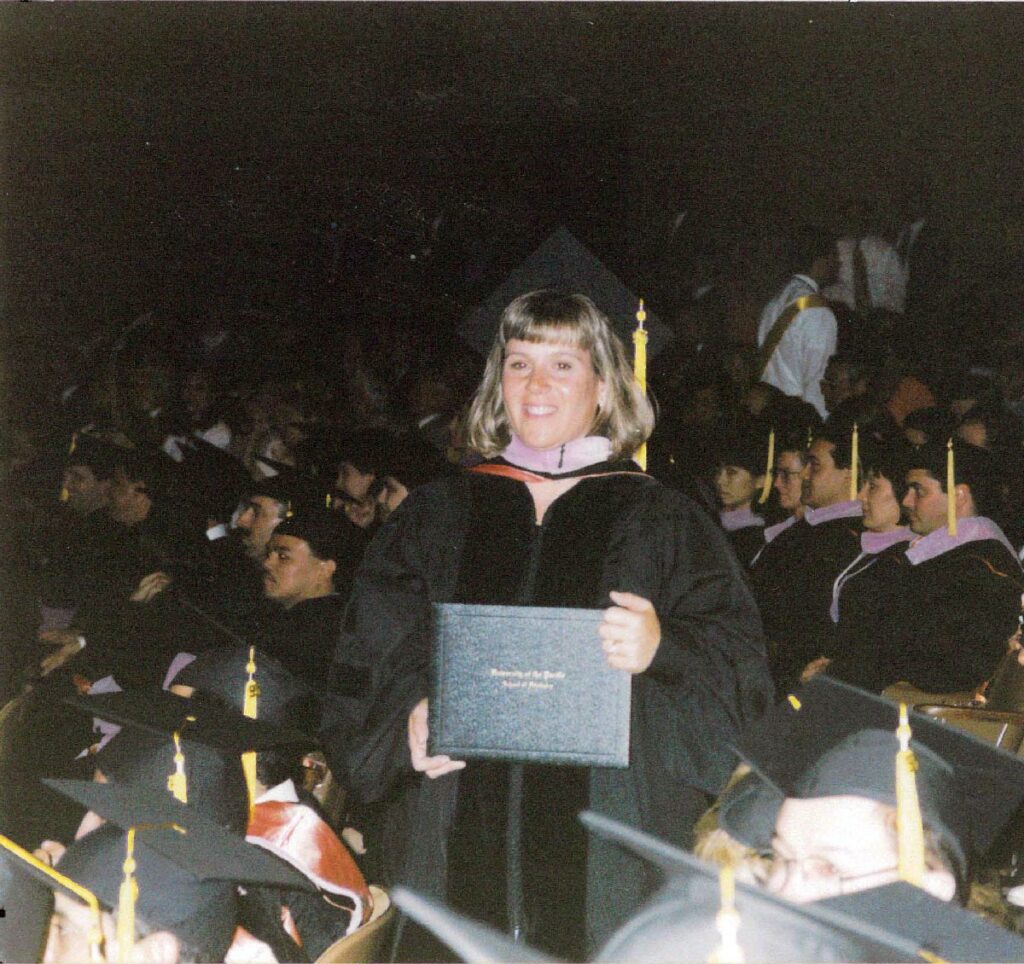 Photo by Margaret Montante
Photo by Margaret Montante
Nadershahi
I think our graduates, students and residents will enjoy learning about our experiences as graduates of the Dugoni School working in academic leadership roles. On the first day of school when I meet with our new students, we talk about expectations and the profession. I ask them, “What do you see yourself doing 20 years from now?” When Art was still with us, I would ask him to join me and we would do this together. After listening to their answers, I say that I see them being deans of dental schools, presidents of the ADA, presidents of state dental associations and many other positions in addition to being great people and practitioners.
I don’t know if either of you thought that you would be dean of a dental school on that first day. I certainly did not. What led you into your deanship?
Smith
I never thought about being a dean until Russ Gilpatrick who was dean before me at Midwestern (and a Dugoni School alumnus himself) said, “I’m going to retire, and we’ve talked about you becoming dean.” I got into academia because I wanted to be with the students and be an instructor and teach the students how to be amazing dentists. The role of dean is removed quite a bit from that of an instructor.
Andrews
I always wanted to be an academic. When I was in practice, I kept saying, “I want to go back and teach.” It was just too far away when I was in practice to go to the Dugoni School and teach. So, after the opportunity to sell my practice, I saw a route into academics. Once I ended my residency, I was looking for a place that was like the Dugoni School. I saw in Western that small collegial, interactive, educational experience we had as students at the Dugoni School. For me, the trajectory was probably kind of unusual for most administrators because I was able to move up rapidly, and eventually became academic dean in 2011. In dental school, I never really had time for a leadership role because of my family obligations. But as soon as I hit the ground running, I guess Art Dugoni was there to encourage me to get involved in CDA. It just was embedded in me without me even knowing it. So all those pieces have come together. I think back to when I was in dental school, and it’s that experience I want to pass on to our students and get them so excited about becoming a dentist.
Nadershahi
Being a dean, you have a unique opportunity to shape the future of the profession. Our experience of having Art Dugoni as our dean and having the mentors and faculty and other people who we worked with shaped who we are as leaders. Now, as educators, we can touch the lives of students, residents and all of the patients they treat.
People ask what’s the favorite part of the job? For me, it’s the people; it’s the students and the residents. What do you most enjoy about opportunities that you have as dean to shape the profession’s future and touch the lives of others?
Andrews
I love encouraging and watching their successes. I also love it after students graduate that they continue to provide access to care. They’re in the community; they give back. That’s our main mission, giving back to those most in need. So having them do that not only in their community, but also through organized dentistry is inspiring.
Smith
My favorite part is having an engaging relationship with the students, staff and faculty. I think that getting to know each student, getting to know each faculty member personally, getting to know each staff member as an individual helps to unify us and break down barriers. We’re able to move forward at a much faster pace when we all know each other. We can get rid of labels—it’s an “all for one, one for all” kind of approach.
I love being with students. I love joking with students. I love being serious with students, If you have a strong personal relationship, they come in and talk to you about issues. You can calm their fears and motivate them. Also, it is great seeing them mature throughout dental school.
Nadershahi
We’re really lucky to do what we do. I have conversations with deans and other people across the country especially through ADEA and other work we’re doing internationally. There are not too many things you can do where you have this kind of an impact and build the kinds of relationships that we do.
Shifting gears now, we were all proud of the Dugoni School as we celebrated our 125th anniversary last year and the history of leadership and innovation the school has established. We pride ourselves on the value of innovation. I’ve seen both of you do that in your programs as well. How do you think the culture of being a student in a school like this has affected your leadership and made that mindset of continuous growth part of what you do?
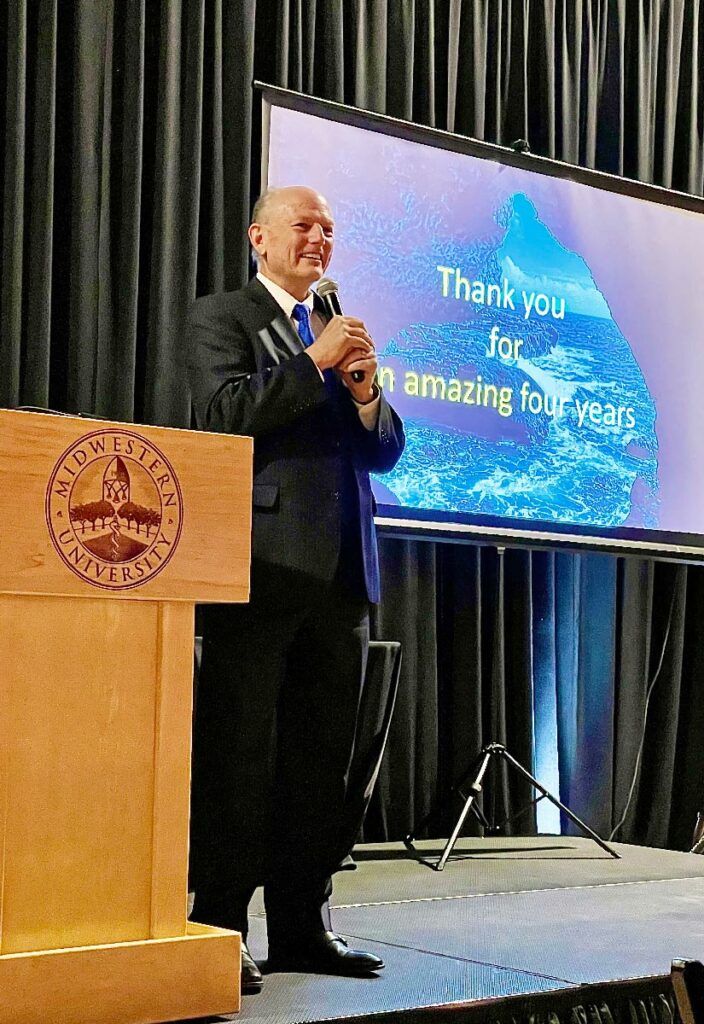
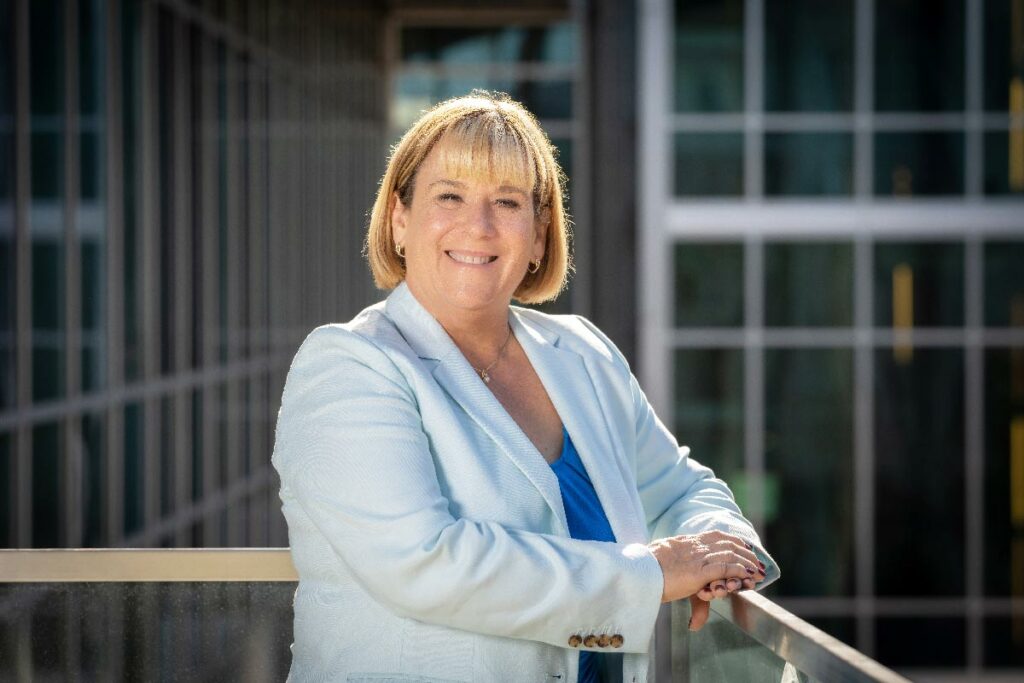 Photo by Jeff Malet
Photo by Jeff Malet
Smith
I don’t know any other way besides the Dugoni School way. I think it’s in the culture. If we’re allowed to create a positive culture, we can really shape the kind of professional we would like people to strive to become.
I was taught that I need to be able to treat all people who seek care and so I’d better get good at treating all patients, including those with special needs. Also, if you’re talking about equity and inclusion, that’s just part of being a good practitioner. If you’re talking about being the boss in your practice, that means leadership. We were taught how to become consummate dentists, and as you become a consummate dentist, you become a very well-rounded person. I don’t think in my 40 years in the profession that’s changed at all. We put labels on things, and we like to say we’re really inventive. But I think it all comes back to the way we treat people.
Andrews
While I was at Western, the small nature of our cohort and the campus as well, allowed us to have the opportunity to bring in students who are well-rounded, even nontraditional students, and mold them along with skill sets to become general dentists who give back to the community as leaders. The experiences during my Dugoni School years became embedded in me, and I only saw that way and knew that was the way it should be. You really want students to believe in it, because that’s how the they will grow up with that same spirit.
Nadershahi
What are you most hopeful about, based on all the interactions you’ve had with students and residents that you work with each year?
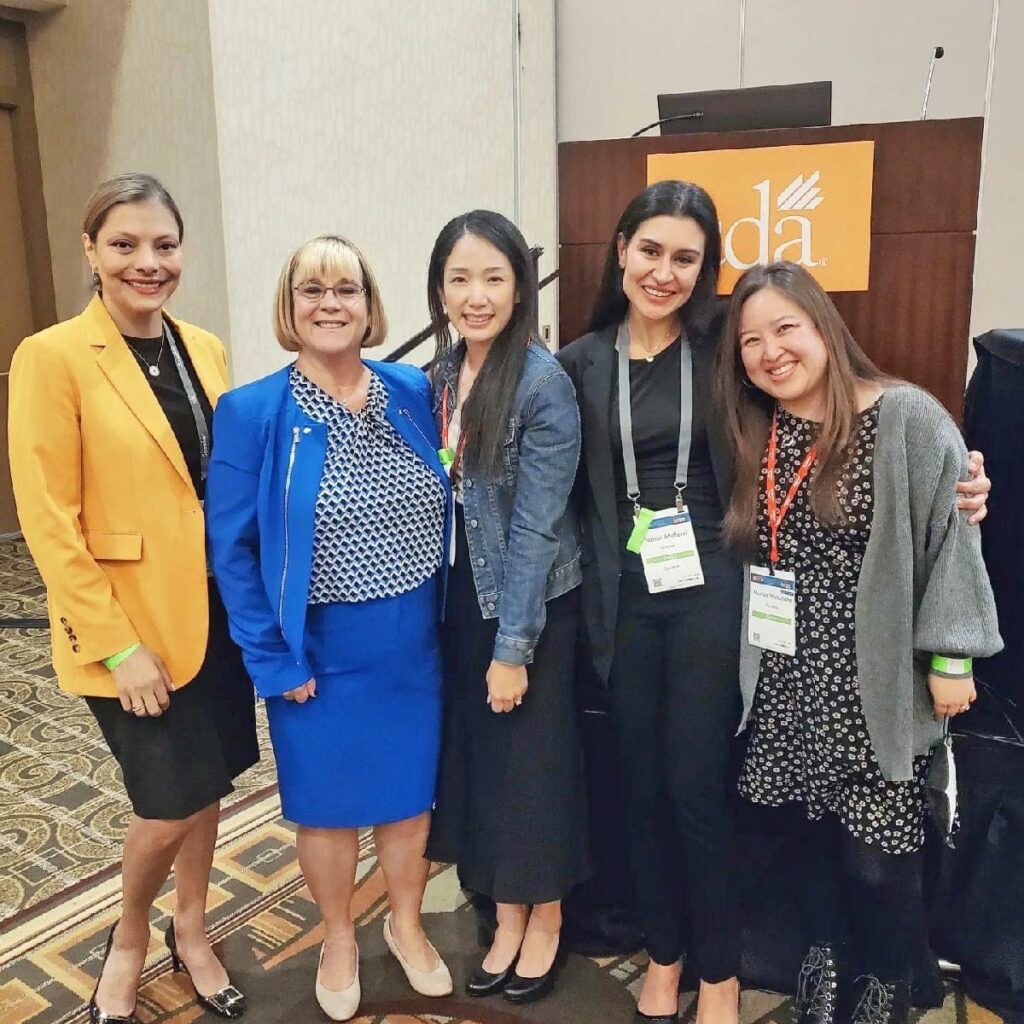
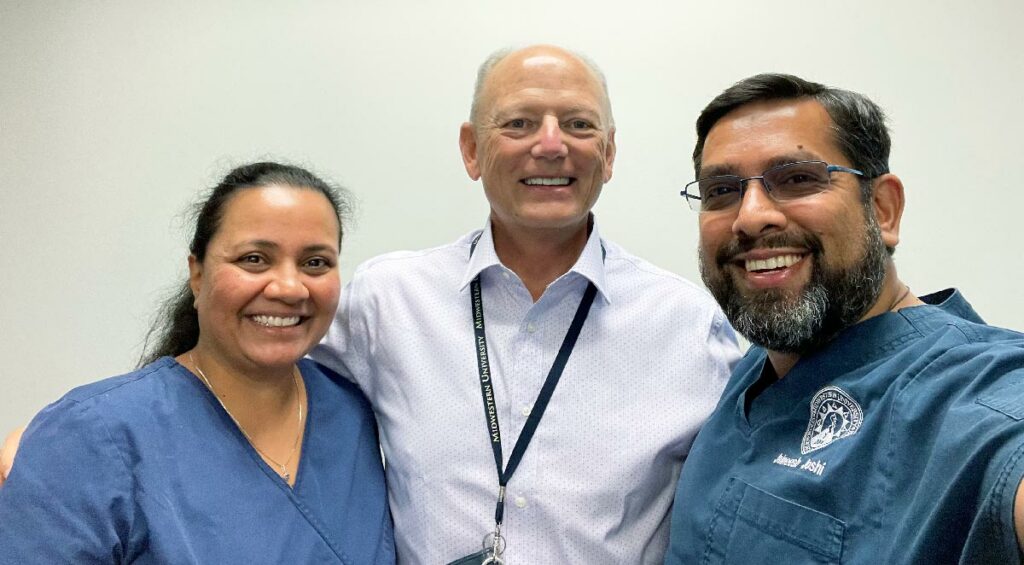 Photo by Jaineesh Joshi
Photo by Jaineesh Joshi
Andrews
From my perspective, the students are so resilient. Even when they’re faced with challenges, they’re capable of overcoming them. Some might have started their careers at corporate dentistry because they were unsure of their professional role. But then they decide, “This is not for me; this is not where I see myself,” and then they still push forward, they buy a practice or create a group practice. This gives me hope that no matter where we are, and whatever direction dentistry goes, our graduates are going to make great decisions, and they’re going to make it better for the next person.
Smith
Liz, I agree. First, it’s a unique group that comes into dentistry. For the most part they all have similar characteristics. Resilience has definitely been on display during the COVID years. You readily saw that, and that is a great character trait. I look at the students that I’ve worked with over my tenure and know they’ve truly blessed and enriched my life. They’ve kept me young. They’ve kept me on my toes. You hear so much negativity about the younger generation, and you can actually find negative things to say if that is what you are looking for. But I see great potential and I think it’s pretty much this way across all dental schools in the country.
Nadershahi
That’s so important and I appreciate your reflection on this generation. I very much feel the same way because you hear these stereotypes, and they tend to be negative. What we see every day in our programs with our students is young, talented, energetic people who want to help others, and they want to make their patients healthier. They want to make their communities better. Whenever they bring something up, it’s always from the right place and they want to make improvements in what we are doing.
All three of us went to school here during Art Dugoni’s 28-year tenure as dean. He set a high bar of excellence for not only how he served the school family, but also the profession. I know we all benefitted from having him as a role model. Is there anything else you want to share?
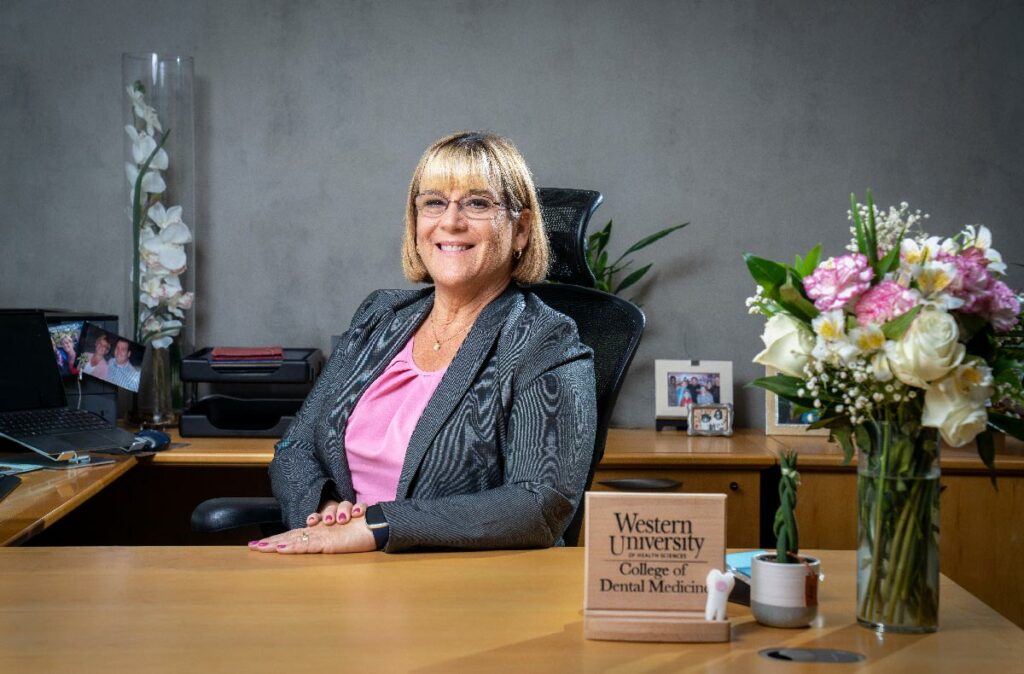 Photo by Jeff Malet
Photo by Jeff Malet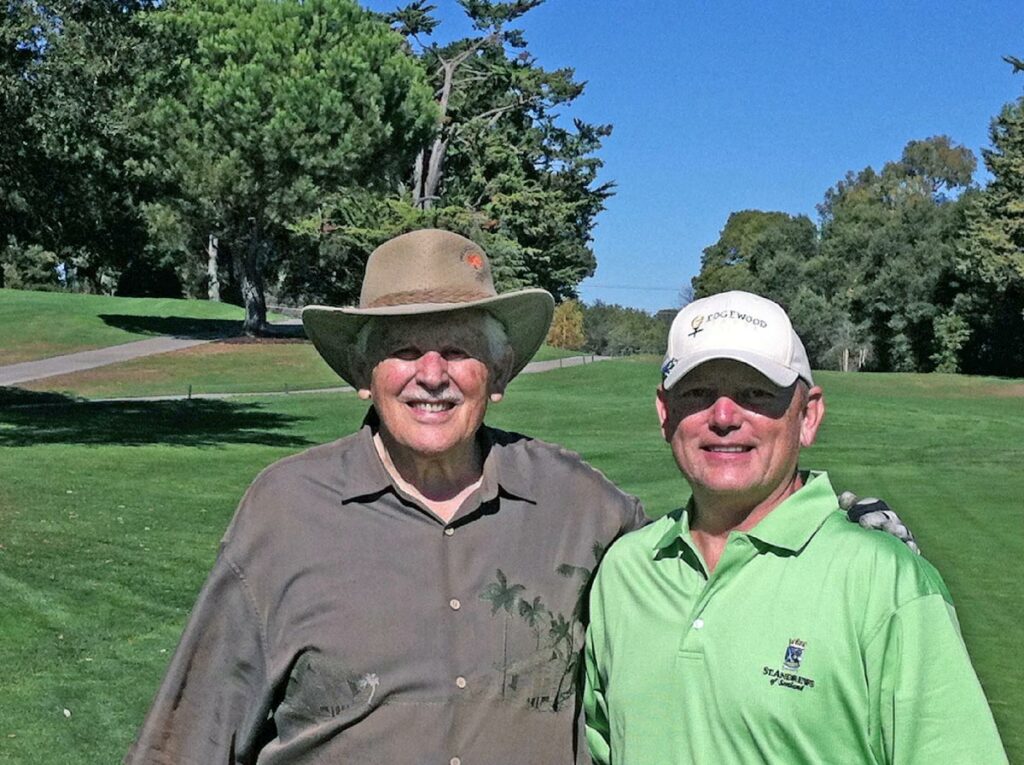 Photo by Russ Gilpatrick
Photo by Russ Gilpatrick
Andrews
Once when I was moving my office, I found a thoughtful, handwritten card from Dr. Dugoni that he sent to me when I became academic dean—he had heard through the grapevine. I was cleaning up, moving my office two doors down and trying to make it my own. So I opened the card up. Oh, my gosh! It had a photo of the old building. I showed the card off. So that was something that really just resonated with me. I’m still connected, and Dr. Dugoni is who I would like to be similar to, but in my own way.
Smith
I think the Dugoni School does the best job of any school in providing well-rounded, caring, humanistic graduates with a desire to be excellent and give back. And it’s because that’s who Art was. One thing I remember most about Art is when we had an opportunity on three or four occasions to go golfing together. As accomplished as Art was over his lifetime, he never lost the ability to be humble enough to not put himself above other people. When he was with other people he always put them above himself, and would take the back seat, and everyone knew that he was way better than they were. It’s a great talent to be able to do something like that.

